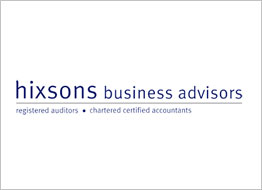Actually, don’t..whatever your psychological hang-ups. Which we all have – psychologically we avoid negative advice. But people do not realise that success comes from avoiding losses in the main, rather than making profits.
Think about it. Where do you get positive advice? Bookshops are full of it. There are so many self help books, none called “What I learned from going bust”. A pity, because those lessons, hard learned, are more compelling and more lasting.
And whilst I’m at it, this country doesn’t give failures a chance. In America, someone fails, and people assume they have learned something, so at the least, they will not repeat that particular mistake. Here, more of a stigma. Once a failure, always a failure. Obvious nonsense when you think about it, but so true to the British, more pessimistic, mentality.
Linked to this need for positive advice, is the need to take some sort of action. Even when doing something is damaging. There is a presumption in business men that they are decision makers, so they must make a decision. Ignoring the fact that doing nothing is also a decision. How have they assessed the chance of error, if there is this need to make a decision? And how have they learnt how to do this?
For error avoidance is a skill, and it needs to be learnt. It comes from thought, research and planning. Decisions later..
But I’m getting ahead of myself. No chance of a decision until you’ve thought about the limitations of your knowledge.
When did medicine start saving lives? Any further back than last century? No, I’m not being rude. It’s simply that knowledge wasn’t advanced enough to save more than a small proportion of patients. Sometimes there was enough knowledge, sometimes it was luck, most times mortality rates improved through better sanitation and nutrition. And which doctor, when faced with symptoms outside their knowledge, would admit it? They would have a go, do their best, and hope.
So, for the business man, should he explore what he doesn’t know before he acts? But, when would any decision ever be made, I hear you ask? Later! Or not..
If we are trying to rely on financial markets, we now know (for the moment) we can’t. We thought we could. Our regulators have let us down .And we have been gullible and thoughtless. So is more regulation the answer? Doubtful, when the regulators don’t understand the ever more complex financial products available for a willing customer to buy (who certainly can’t be expected to know what they do).
We and our betters have relied upon the risk measurement scores of credit agencies, which weakened the system as bankers used them to build the very positions that failed. Simply put, no one really knew what the products actually did. And we, poor saps, jumped in – lemming like – so we didn’t lose out, relying upon other people’s assessments of risk and reward. They weren’t trying to mislead – they simply didn’t realise the limits of their knowledge.
Stop assuming that your house will provide your retirement fund, or that it will go up year on year, as it simply is putting too many eggs in one basket. (This country is obsessed by house prices!) Your shares, unit trusts, pensions plans aren’t given to certainties, no matter how many expert opinions you get. Use all the facts you can, realise where the knowledge stops, and if you don’t understand it, don’t do it!
